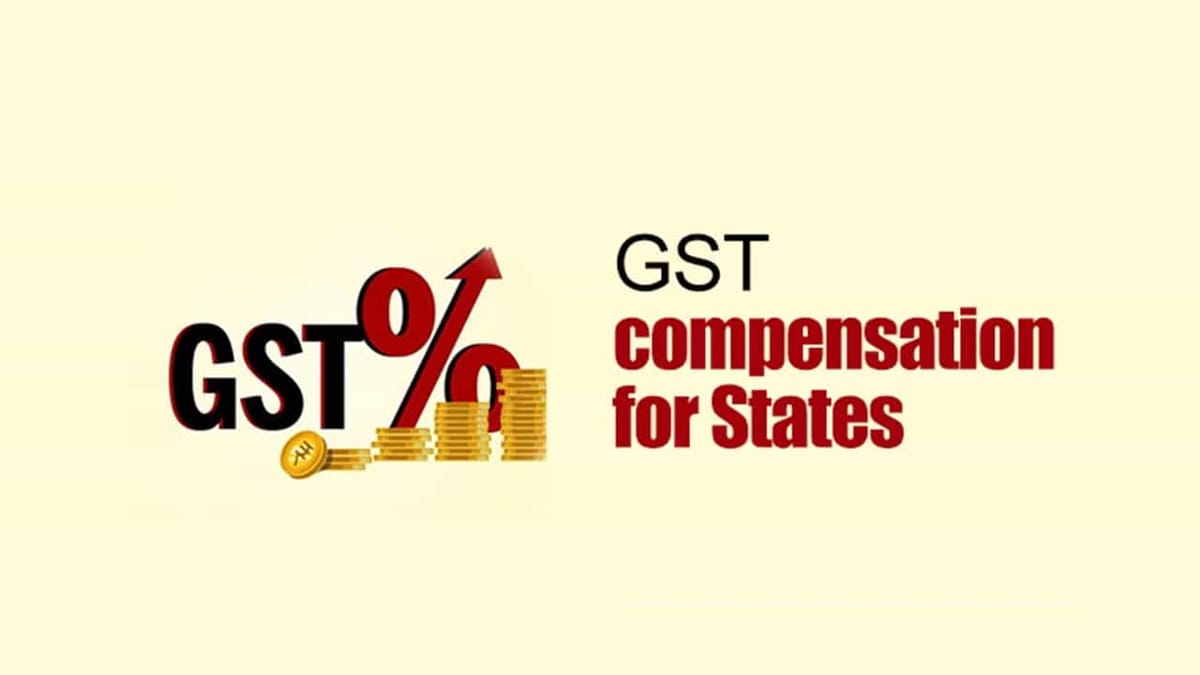Reetu | Jan 20, 2023 |

End of GST Compensation will affect Six States; says RBI
Reserve Bank of India report on state finances, the termination of the goods and services tax compensation programme in June of last year is expected to have the “most severe impact” on the economies of half a dozen states.
According to the report, the average share of GST compensation exceeded 10% of tax revenue for these states. The report provided, at least ten states, including Karnataka, Tamil Nadu, Maharashtra, Gujarat, and Uttarakhand, are expected to fall short of their budgeted 14% GST growth.
“The top five compensation-receiving states during the five-year transition period were Maharashtra, Karnataka, Gujarat, Tamil Nadu, and Punjab. However, the states most likely to be harmed by the end of the compensation regime are Puducherry, Punjab, Delhi, Himachal Pradesh, Goa, and Uttarakhand, where the share of GST compensation in tax revenue has exceeded 10% on average “According to the RBI report released on Monday.
It stated that the northeastern states benefited the most from the GST regime, with a compound annual GST revenue growth rate of 27.5% from the tax’s implementation in 2017-18 to 2022-23, compared to 14.8% for all states.
These states can increase revenue by increasing compliance, plugging leaks, and broadening their tax base. States received full compensation for the first five years of GST, calculated as the difference between projected revenue growth of 14% per year with 2015-16 as the base year and actual revenue, the report concluded.
The compensation period concluded on June 30. “The real issue is that other tax revenues are not increasing proportionately, which is causing this problem. As the economy slows further, revenue growth will suffer even more, and this will need to be cushioned in the coming year’s budget. This also means that states will not reduce the value-added tax (VAT) on gasoline “said Madan Sabnavis, Bank of Baroda’s chief economist.
The GST compensation cess collection budget is Rs. 1.2 trillion, up from Rs. 1.04 trillion in 2021-22. As of November, Rs. 82,497 crore in compensation cess had been collected.
Despite persistent headwinds, states’ fiscal outlook remains favourable, with high growth in revenue receipts expected, as per report.
“GST and other tax growth has been healthy so far in 2022-23, which should help many states absorb the impact of the planned end to the GST compensation period,” Aditi Nayar, chief economist at ICRA Ltd, said.
Several states had pushed for an extension of GST compensation for another two to five years, claiming that if they were not adequately compensated, they would face annual losses.
Jharkhand Chief Minister Hemant Soren requested an extension last month, citing a revenue shortfall of Rs. 5,000 crore per year.
Similarly, Chhattisgarh has stated that if the compensation is discontinued, it will suffer a loss of close to Rs. 3,000 crore per year. According to Delhi, revenue losses could total Rs. 8,000 crore.
“GST collection is directly related to consumption, and its growth is primarily driven by state GDP growth, with some states benefiting from remittances. Because each state’s growth profile is unique, this will be reflected in GST collection and growth. Tax compliance will undoubtedly have an impact on collections, which will not provide much buoyancy in the long run. It is entirely dependent on the growth profile in the medium to long run. A higher growth profile will result in increased GST collection as well as fiscal consolidation “Devendra Kumar Pant, chief economist at India Ratings and Research, concurred.
The Council decided in September 2021 to extend the compensation cess period until March 2026, but the proceeds will be used to repay the back-to-back loans taken between 2020-21 and 2021-22, not to compensate states further.
Following the pandemic, as GST collections fell and the corpus available in the GST Compensation Cess Fund was insufficient to meet the compensation demand from states, the Union government resorted to market borrowings of Rs. 1.10 trillion and Rs. 1.59 trillion, respectively, in 2020-21 and 2021-22, to provide back-to-back loans to states in lieu of the GST compensation shortfall.
According to the RBI report, the states’ financial health has improved from a sharp pandemic-induced deterioration in 2020-21, owing to a broad-based economic recovery and high revenue collections. The gross fiscal deficit (GFD) of states is expected to fall from 4.1% of GDP in 2020-21 to 3.4% in 2022-23.
In case of any Doubt regarding Membership you can mail us at contact@studycafe.in
Join Studycafe's WhatsApp Group or Telegram Channel for Latest Updates on Government Job, Sarkari Naukri, Private Jobs, Income Tax, GST, Companies Act, Judgements and CA, CS, ICWA, and MUCH MORE!"